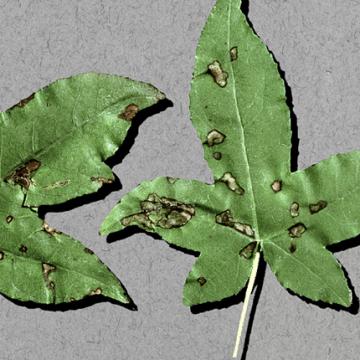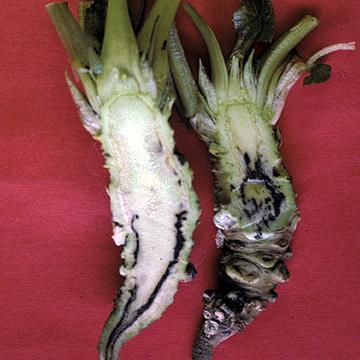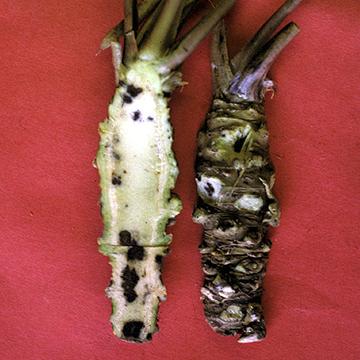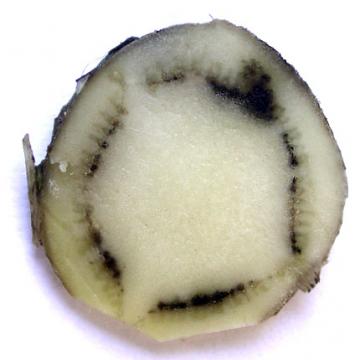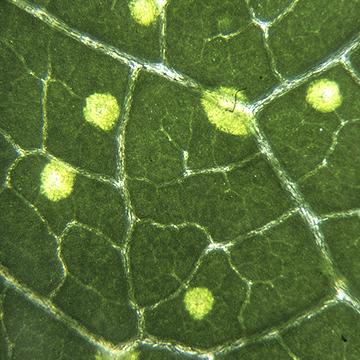DISEASE: Bacterial leaf spot and canker
HOST: Sweetgum
Leaves with irregular necrotic lesions.

Bacterial leaf spot and canker | Sweetgum
DISEASE: Bacterial leaf spot and canker
HOST: Sweetgum (Liquidambar styraciflua)
PATHOGEN: Pseudomonas syringae pv. syringae
SOURCE: A. Bishop
DISEASE: Bacterial leaf spot and canker
HOST: Sweetgum
Stem canker of sweetgum.
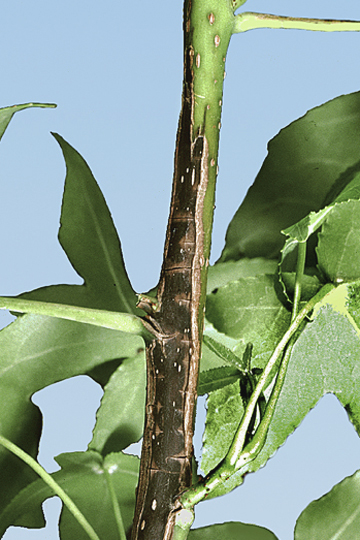
Bacterial leaf spot and canker | Sweetgum
DISEASE: Bacterial leaf spot and canker
HOST: Sweetgum (Liquidambar styraciflua)
PATHOGEN: Pseudomonas syringae pv. syringae
SOURCE: A. Bishop
DISEASE: Bacterial soft rot
HOST: Wasabi (Japanese horseradish)
Longitudinal sections of diseased rhizomes with discolored vascular tissues.
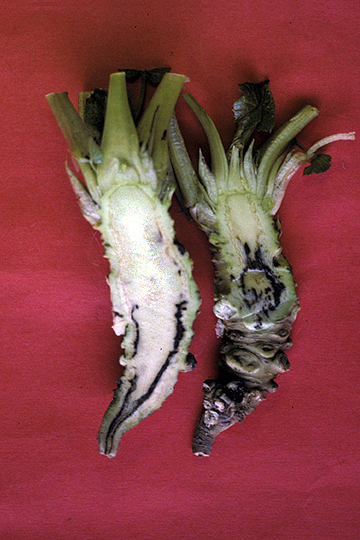
Bacterial soft rot | Wasabi (Japanese horseradish)
DISEASE: Bacterial soft rot
HOST: Wasabi (Japanese horseradish) (Wasabia japonica)
PATHOGEN: Pectobacterium wasabiae
PATHOGEN SYNONYM: Erwinia carotovora subsp. wasabiae
SOURCE: M. Goto
DISEASE: Bacterial soft rot
HOST: Wasabi (Japanese horseradish)
Longitudinal section of rhizome with discolored vascular bundles (left), and rhizome with external symptoms (right).

Bacterial soft rot | Wasabi (Japanese horseradish)
DISEASE: Bacterial soft rot
HOST: Wasabi (Japanese horseradish) (Wasabia japonica)
PATHOGEN: Pectobacterium wasabiae
PATHOGEN SYNONYM: Erwinia carotovora subsp. wasabiae
SOURCE: M. Goto
DISEASE: Bacterial soft rot
HOST: Wasabi (Japanese horseradish)
Cross section of rhizome with dark, infected vascular bundles.
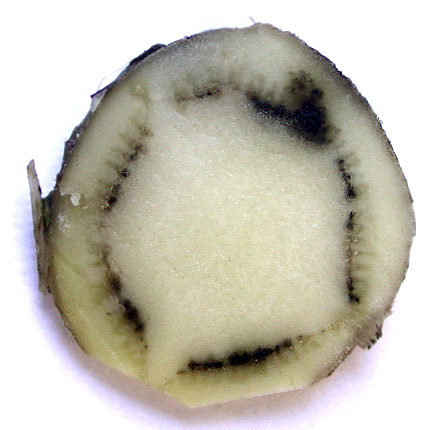
Bacterial soft rot | Wasabi (Japanese horseradish)
DISEASE: Bacterial soft rot
HOST: Wasabi (Japanese horseradish) (Wasabia japonica)
PATHOGEN: Pectobacterium wasabiae
PATHOGEN SYNONYM: Erwinia carotovora subsp. wasabiae
SOURCE: G. Rodriguez
DISEASE: Halo blight
HOST: Bean
Leaf of 'Bountiful' bean with chlorotic halos, an early stage of disease. Tiny water-soaked are difficult to see.

Halo blight | Bean
DISEASE: Halo blight
HOST: Bean (Phaseolus vulgaris 'Bountiful')
PATHOGEN: Pseudomonas syringae pv. phaseolicola
PATHOGEN SYNONYM: Pseudomonas savastanoi pv. phaseolicola
SOURCE: M. Schroth


